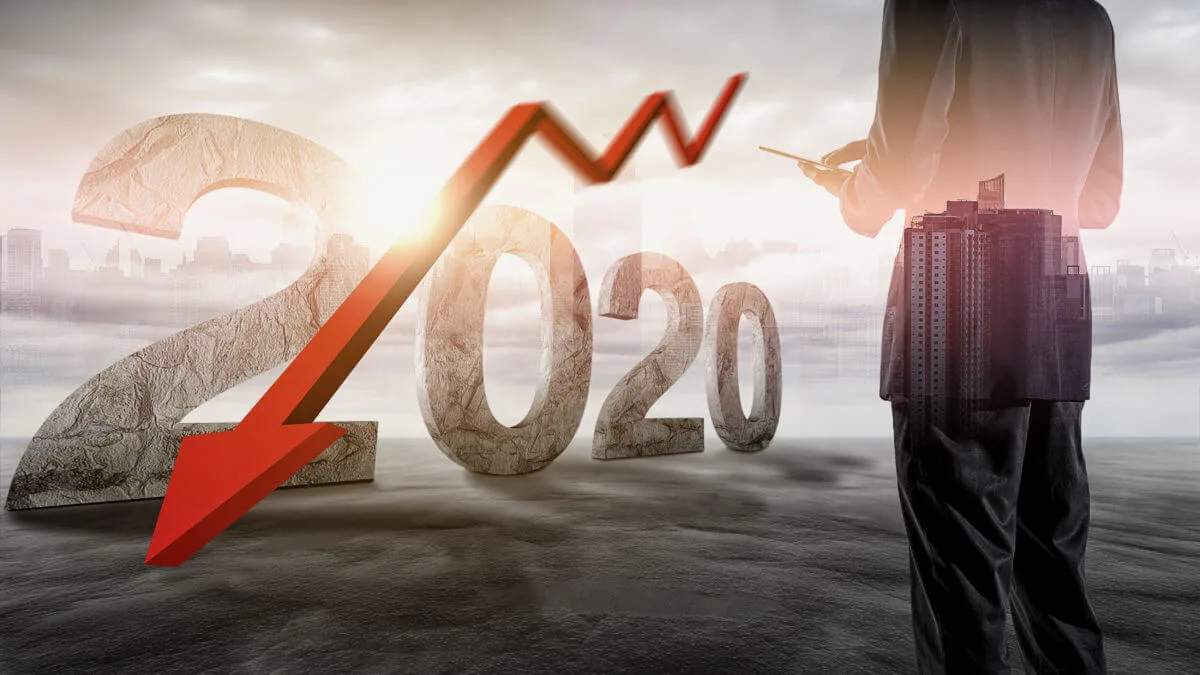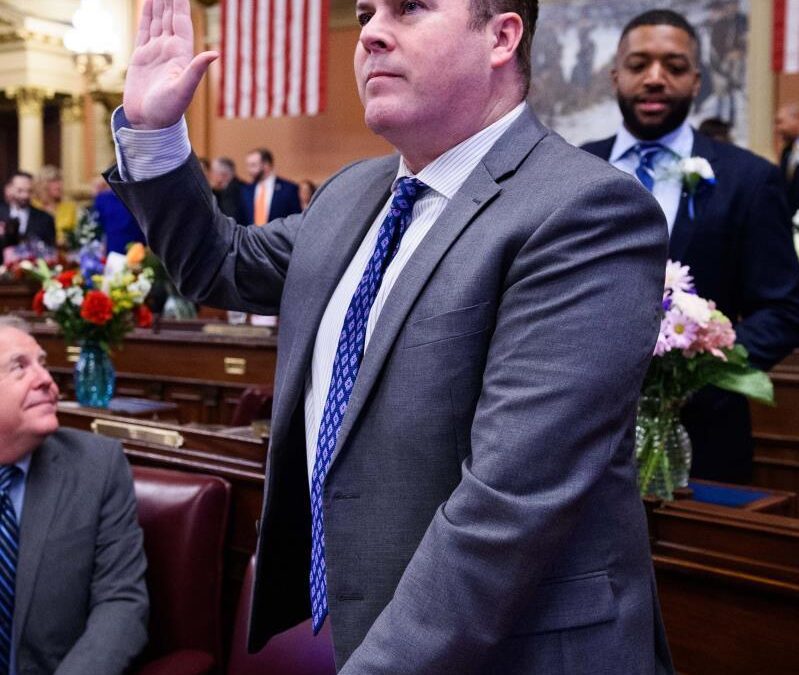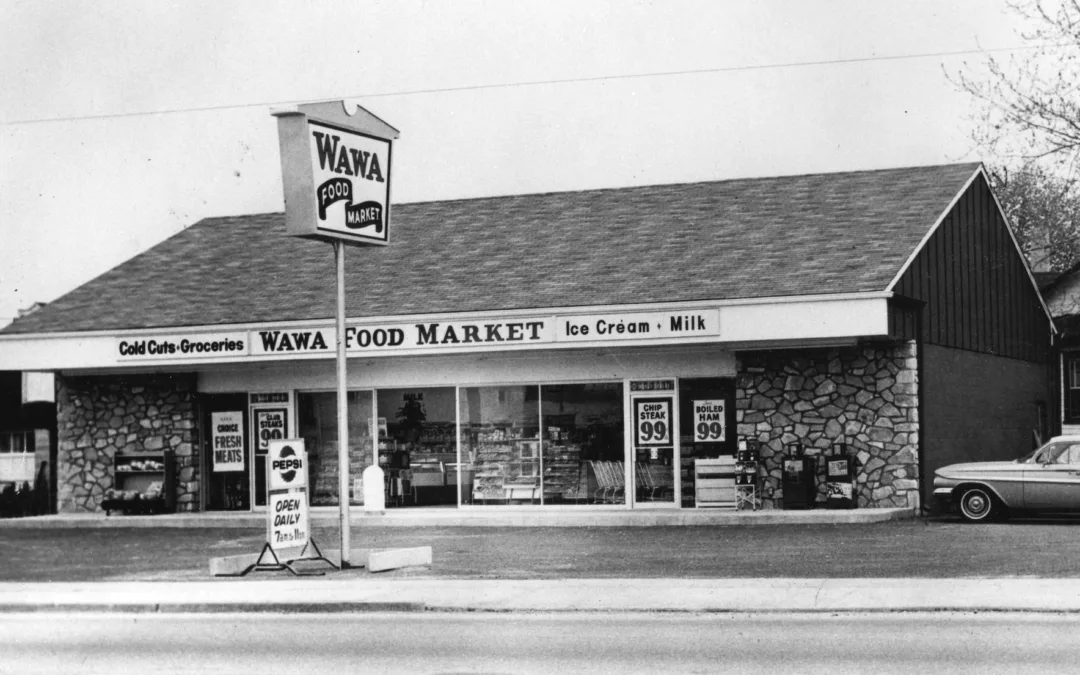
In the next six months, the state is projected to endure the most significant economic contraction since June 2009.
Pennsylvania and eight other states are expected to experience economic losses in the next six months, according to recent projections from the Federal Reserve Bank of Philadelphia.
In other words, recession could be on the horizon.
Experts say Pennsylvania’s economy will suffer the most significant contraction since June 2009, when the state was still in the midst of the Great Recession. The December report, which analyzed data from November, marks the second consecutive month in which the Fed projected Pennsylvania’s economy to shrink. Prior to the two most recent estimates, the Fed hadn’t projected a contraction in the state since June 2012.
West Virginia, which already has the third-highest unemployment rate, is predicted to suffer the most significant economic downturn in the country, while Delaware, Montana, Oklahoma, Vermont, New Jersey, Kentucky, and Connecticut are also expected to experience contractions in the next six months.
Should Pennsylvania or any other state experience a recession—which is defined as two consecutive quarters of economic decline—workers could lose their jobs, experience decreasing wages, or in extreme cases, find themselves plunged into poverty.
The Philly Fed’s monthly projections, or “leading indexes,” take into account a state’s nonfarm payroll employment, unemployment rate, average hours worked in manufacturing, and wages and salaries. The bank also includes other variables, such as state-level housing permits and unemployment insurance claims, when calculating leading indexes.
The leading index for Pennsylvania was -0.5 in November, in part due to a decrease of building permits as well as a decrease in initial unemployment insurance claims.
“Overall, Pennsylvania’s leading index for November suggests contraction in the state’s economy in the second quarter of 2020,” the report reads.
A spokesperson for Pennsylvania Gov. Tom Wolf told COURIER that they are “reviewing the report.”
Experts say Pennsylvania’s economy will suffer the most significant contraction since June 2009, when the state was still in the midst of the Great Recession.
Warning signs of potential economic turmoil exist outside of the report’s projections, too. Pennsylvania lost nearly 5,000 manufacturing jobs in 2019 and saw its unemployment rate increase from 3.8 percent in June to 4.3 percent in November.
Should a downturn come to fruition, it could prove uniquely challenging for the state.
A 2019 report from Moody’s Analytics found Pennsylvania was one of 10 states that is “significantly underprepared” for the next recession, due to its minimal fiscal reserves.
The report praised the state for directing $339 million to its reserves, which will help blunt the impact of the next downturn, but noted that “Pennsylvania’s reserves still fall well short of what will be needed” in a recession.
Moody’s does not project a recession to occur in 2020, but other economists surveyed by the National Association of Business Economists in November put the odds of a recession at 47 percent. A separate survey of economists said there was a one-in-three chance of a downturn in 2020.
The national unemployment rate remains low at 3.5 percent and interest rates are also low. The USMCA trade deal (which awaits a full Senate vote) could also provide an additional boost for some sectors of the economy. Yet, tens of millions of Americans say they haven’t personally felt the economy’s gains.
Four in 10 Americans say they struggle to pay for basic needs such as food and housing, according to a 2019 study from the Urban Institute, and 59 percent of Americans live paycheck to paycheck, according to another 2019 report from Charles Schwab.
If the Great Recession was any indicator, these already-struggling individuals stand to be hit the hardest by the next downturn.
A recession could also have significant consequences for President Trump’s bid for re-election. Trump has repeatedly boasted about the strong economy and tied his candidacy to the economy—just this week, he said “our economy is stronger than ever before.” In Pennsylvania, the predicted economic contraction could be particularly troublesome for Trump, whose surprise win there in 2016 helped propel him to the White House.
The Federal Reserve Bank of Philadelphia declined to comment for this story, but the future of Pennsylvania’s economy will likely become more clear in early February, when the state budget’s economic forecast is released.
Politics

Malcolm Kenyatta makes history after winning primary for Pa. Auditor General
State Rep. Malcolm Kenyatta, who was first elected to the state House in 2018, won the Democratic nomination for Pa. Auditor General and will...

Biden administration bans noncompete clauses for workers
The Federal Trade Commission (FTC) voted on Tuesday to ban noncompete agreements—those pesky clauses that employers often force their workers to...

Philadelphia DA cancels arrest warrant for state Rep. Kevin Boyle on eve of Pa. primary
Philadelphia District Attorney Larry Krasner said a detective had sought the warrant against Boyle, a Democrat whose district includes a section of...
Local News

What do you know about Wawa? 7 fun facts about Pennsylvania’s beloved convenience store
Wawa has 60 years of Pennsylvania roots, and today the commonwealth’s largest private company has more than 1,000 locations along the east coast....

Conjoined twins from Berks County die at age 62
Conjoined twins Lori and George Schappell, who pursued separate careers, interests and relationships during lives that defied medical expectations,...






